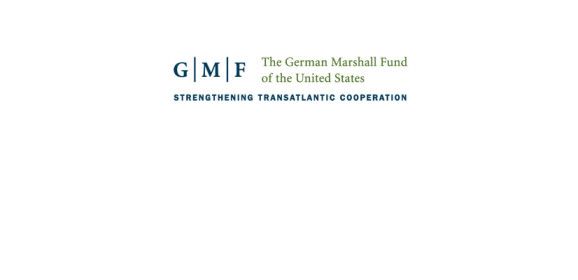Section: The German Marshall Fund of the United States (USA)
Why Are Germans So Sympathetic to Russia?
Image www.huffingtonpost.com The deployment of Pershing II missiles in the early 1980s by NATO to counter Soviet SS-20s led to widespread fears in Germany that the Cold War would escalate. Hundreds of thousands marched in protests, demanding that NATO refrain from deploying the missiles. Many members of the German public were ready to trust...
Transatlantic Unity Makes Russia Sanctions More Effective
WASHINGTON—It has been a year since the United States, European Union, and other allies first sanctioned Russia for its illegal annexation of Crimea and aggression toward Ukraine. As Russia’s destabilization of Ukraine continued, the United States and Europe broadened sanctions in an effort to persuade Vladimir Putin’s government to...
Should Western Leaders Attend Moscow’s WWII Parade?
On May 9, Russian President Vladimir Putin will preside over the Moscow Victory Day Parade in Red Square, which will celebrate the seventieth anniversary of the capitulation of Nazi Germany in 1945. Carnegie Europe asked a group of experts whether Western leaders should attend the event. Joerg Forbrig, Transatlantic fellow for Central and Eastern...
Why the U.S. should ignore Belarus’ unlikely appeal
Desperate times call for desperate measures. This is likely what Belarusian leader Alexander Lukashenko was thinking last week when calling on the United States, which dubbed him “Europe’s last dictator.” In a rare interview with Western media, Minsk’s strongman urged Washington to engage in talks to resolve the Ukraine crisis and...
2015 Manfred Wörner Seminar Class Announced
The German Marshall Fund is pleased to announce the 2015 class of American Manfred Wörner Seminar (MWS). This year’s participants come from around the United States and bring diverse forms of expertise on security issues to the cohort, from policy analysis to the private sector. Begun in 1982 as the Multiplikatoren Seminar (Multiplier...
Alternative for Germany
The right-wing populist party Alternative for Germany (AfD) has been facing fierce internal debates recently. Amongst other issues being contested, the party’s stance on crucial matters of foreign policy is subject to passionate internal talks. The AfD’s future positioning on the Russian invasion of Ukraine, the Transatlantic Trade...
Meet Europe’s Rising Defense Stars
Below the radar, a new generation of female European leaders is offering bold ideas on defense and taking political risks. Sitting in Washington, it is often too easy to look across the Atlantic and think there is no one serious about defense. European leaders are preoccupied with internal questions like the future of the European Union. Their...
Closing Ranks: Aligning NATO and the EU’s Strategic Priorities
The EU has not lived up to its ambitions for decisive, autonomous military action, nor has there been sufficient NATO-EU coordination, let alone cooperation. For many years, the EU could afford to live with these inconsistencies. But the Russia/Ukraine crisis and the uproar in the Islamic world have fundamentally altered the strategic landscape...
Keys to a low-carbon future on both sides of the pond
The path to less expensive, lower emissions electricity systems in the US and EU share many basic features, writes Paul Bledsoe of the German Marshall Fund. This week the European Union approved plans for an ‘Energy Union’ to better coordinate energy policy and markets among its 28 member countries. The effort was initially prompted by the...
Can Europe Survive Without Russia’s Natural Gas? Part II: More Expensive, but the Right Way Forward
The deterioration of the relations between the EU and Russia, caused by tensions over Russia’s annexation of Crimea and Moscow’s active support of the separatist movement in eastern Ukraine, requires a rethinking of EU- Russian energy ties. In particular, the EU should diversify its natural gas imports away from Russian sources....


